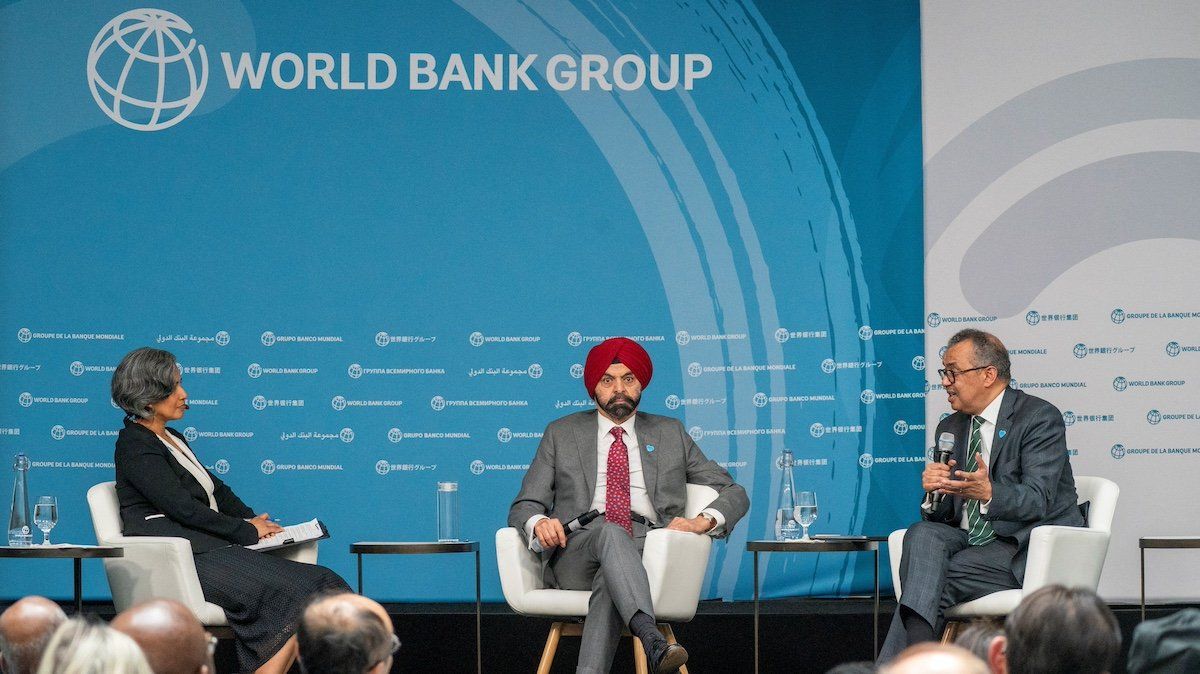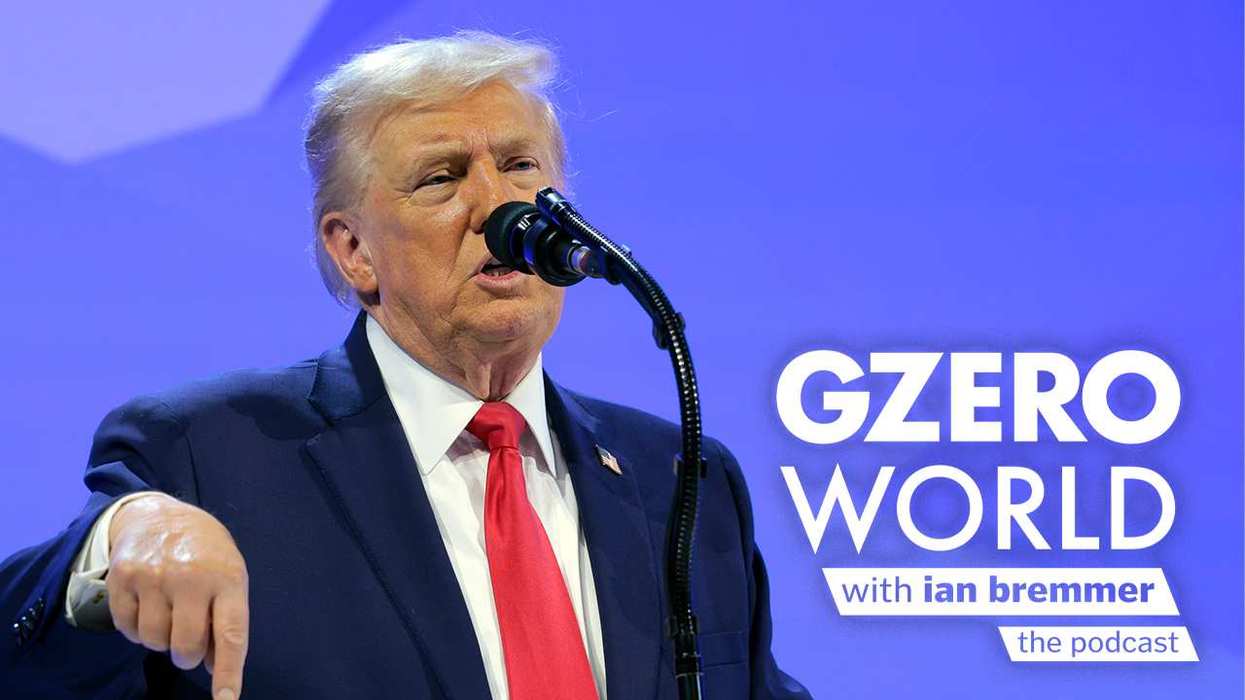As the International Monetary Fund and World Bank spring meetings wrap up Friday in Washington, the two crucial global lenders face a few important challenges in the year ahead. GZERO has been on the ground to bring you the big takeaways.
A tale of two recoveries. The IMF’s global economic outlook is fairly rosy as a whole. Inflation is easing in the US and Europe, and 3.2% growth of global GDP is a respectable clip – especially given recent fears of a recession. The US and Chinese economies are both growing, even if Beijing is still struggling with persistent debt and property market woes.
But the recovery has yet to reach every corner of the globe. One-third of the lowest-income countries are poorer today than in 2019, before the pandemic. And because inflation has pushed up interest rates, the costs of servicing sovereign debt have skyrocketed, an especially heavy burden for lower-income countries. Bringing financial stability to these fragile situations is a key focus for the IMF and the World Bank.
Power up. The World Bank announced it is launching a massive $35 billion plan to connect 300 million people in Africa to electricity. It’s the kind of fundamental development work the World Bank excels at, and it will help put the continent on track to drive an increasing share of global growth in the coming decades.
But many of the African students who might benefit from lightbulbs to study by also lack access to basic medical care – in fact, more than half the population of the globe finds themselves shut out of formal healthcare, and another two billion struggle to afford it. The World Bank plans to bring quality care to some 1.5 billion people and bolster public health systems to create sustainable improvements.
A new approach. World Bank President Ajay Banga stepped into a delicate situation succeeding David Malpass, who courted controversy with his skepticism about climate change. Banga is the first president in over a decade coming in from the private sector and he's attempting to streamline processes and make the institution more agile and flexible, which may include merging the Bank’s keystone conferences into one.
We’ll keep you up to date on progress during the Annual Meetings this fall.
For more on the big takeaways from this year’s conference, watch Senior Writer Matthew Kendrick’s interview with Tony Maciulis here.


















